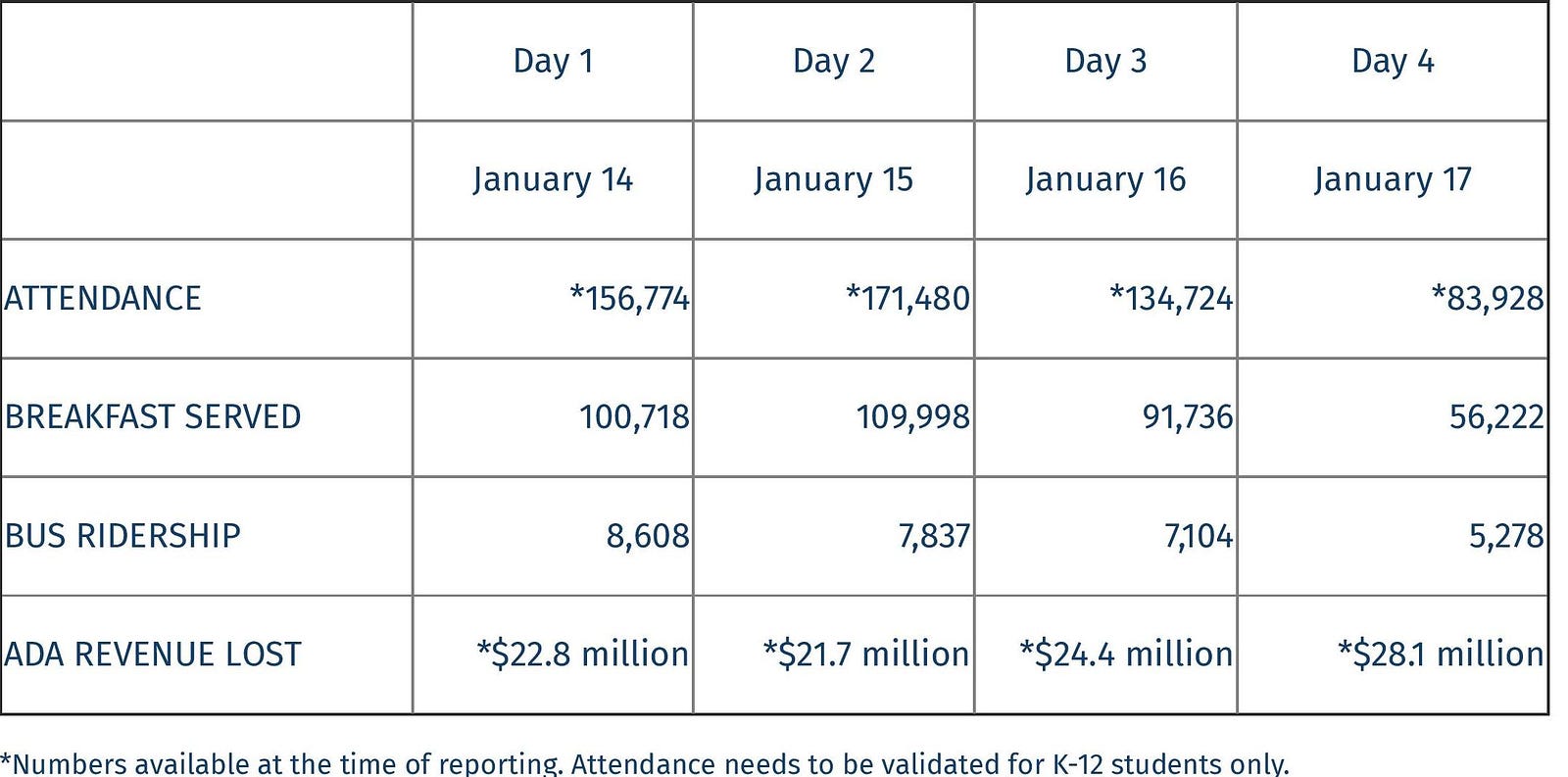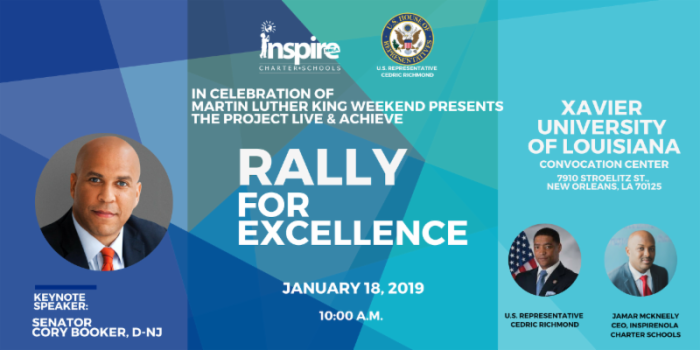Who “Taught” Your LAUSD Student Last Week?
“The messages we are required to send [home to parents] are inaccurate and untruthful. Everything is not copacetic at all of our schools. Some schools have over 200 students with [just] one credentialed person.”
- Juan A. Flecha, President
Associated Administrators of Los Angeles
The Los Angeles Unified School District (LAUSD) could have shut down the schools when their teachers walked off the job and then made up the missing days after the strike was over. Instead, they kept the schools open and encouraged parents to send their children into an environment where they admitted they might not be safe. To make matters worse, the School Board weakened the rules regarding background checks for volunteers just as the strike was about to begin.
Thankfully, there have not been any reports of students receiving serious injuries during the past week, although the anemic attendance at the schools is probably helping that situation. However, at least three reports have shown that the adults being allowed into our schools have not been adequately screened and are engaging in behavior that is not appropriate for our children.
In the first instance, a woman identified by witnesses as “an LAUSD administrator” gave the middle finger to picketing teachers and told them that they “you guys are pollutants to our children”. In the second, a woman assigned to “a school in South Gate” tells picketers that they “care about…money, not the kid’s education.” Without further context, she then says “Build the wall. All you guys wouldn’t be here.”


The District’s response to the second incident was to remove the employee “from her assigned campus” and conduct “an investigation into the incident.” The wording of this messaging seems purposefully vague as it leaves open the possibility that she was removed from “her assigned campus” and placed in another one. Anyone with clear animosity towards Latinx people should not be in close proximity to any children.
The final example is perhaps the most disturbing because it actually involved students in the District. While a former Superintendent once bullied a substitute teacher for following directions and having her students copy an assignment into their composition books, this type of assignment is apparently permissible, during the strike. In this case, Mr. B. was having students write a CONTINUE READING: Who “Taught” Your LAUSD Student Last Week? – Carl J. Petersen – Medium






















